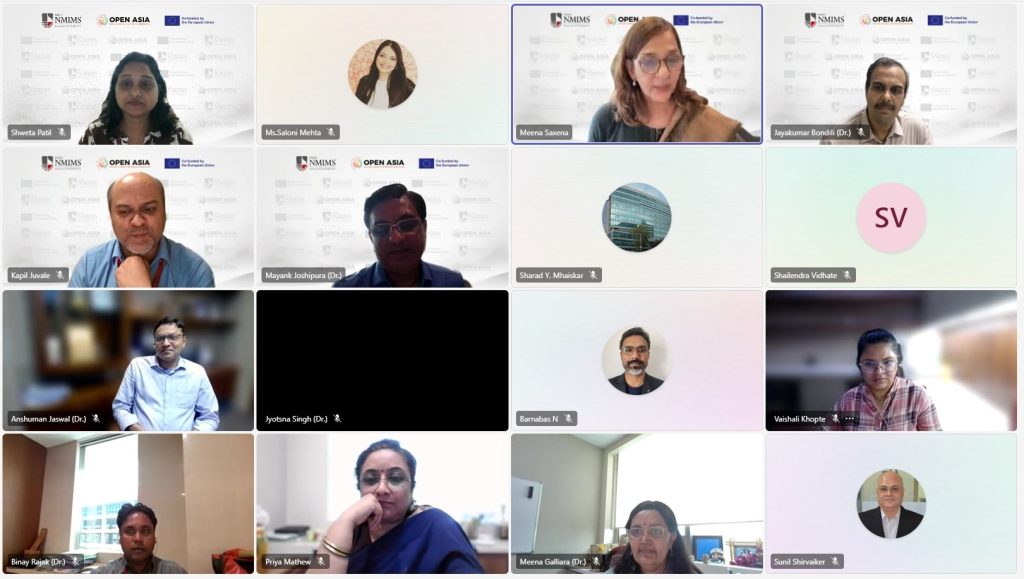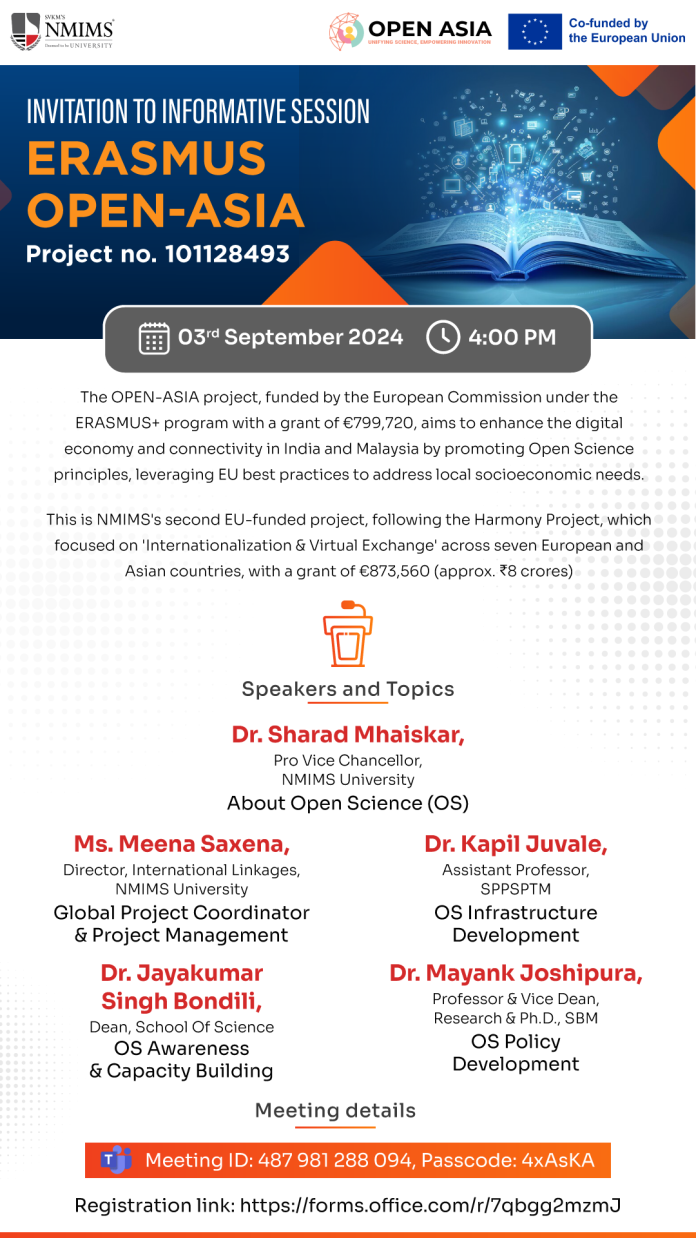The NMIMS Department of International Linkages successfully organized an informative session on the ERASMUS+ OPEN-ASIA Project (#101128493), co-funded by the European Union. NMIMS faculty and staff across its 18 schools and eight campuses were invited for this virtual session The session took place on Tuesday, 3rd September 2024, from 4:00 PM to 5:00 PM.
Objective of the OPEN-ASIA Project
The OPEN-ASIA project seeks to advance the digital economy and connectivity in India and Malaysia by promoting Open Science principles. It leverages best practices from the European Union to address local socioeconomic needs and challenges.
Purpose of the Session
The session aimed to provide NMIMS faculty and staff with critical insights into this prestigious project, including its goals, structure, and planned activities.

Key Highlights of the Session
1. Overview of Open Science Principles:
- Dr. Sharad Mhaiskar, Pro Vice Chancellor (PVC):
Dr. Mhaiskar opened the session with an insightful overview of Open Science principles, emphasizing their importance in enhancing research transparency, collaboration, and accessibility.
2. Detailed Project Insights:
- Ms. Meena Saxena, Director, International Linkages & Project Coordinator:
Ms. Saxena shared comprehensive details about the project, including:- Funding received and budget allocation across various activities.
- Participating universities and the management structure.
- Details of the work packages.
- Overview of the Open Science Conference and Forum at NMIMS.
3. Work Package Presentations:
- Work Package 1: OS Infrastructure Development (Led by Dr. Kapil Juvale, Assistant Professor, SPPSPTM):
Dr. Juvale introduced his team and presented an overview of their recent study visit to the University of Tampere, Finland. He elaborated on the following initiatives:- Drafting and preparing OS-Infrastructure Development Plans.
- Development and maintenance of the University Open Science Portal.
- Equipment planning and development of OS infrastructure.
- Work Package 3: Open Science Policy Development (Led by Dr. Mayank Joshipura, Professor (Finance), Vice Dean – Research & PhD, SBM-Mumbai):
Dr. Joshipura introduced his team and discussed:- Key elements of institutional Open Science policy.
- Insights from UNESCO’s Open Science policy instruments and conferences.
- India’s Open Science Policy (5th STI policy draft) initiatives.
- Work Package 4: OS Awareness and Capacity Building (Led by Dr. Jayakumar Singh Bondili, Dean, School of Science):
Dr. Bondili highlighted the following:- University-level initiatives, including library resources, publishing, and stakeholder engagement.
- School-level projects and community engagement strategies to promote Open Science awareness and capacity building.
Conclusion
The session offered a rich and comprehensive understanding of the ERASMUS+ OPEN-ASIA Project and underscored NMIMS University’s commitment to fostering innovation, collaboration, and global best practices in research through Open Science initiatives. The interactive presentations provided valuable insights into how the project’s activities and objectives align with NMIMS’s strategic vision for internationalization and research excellence


